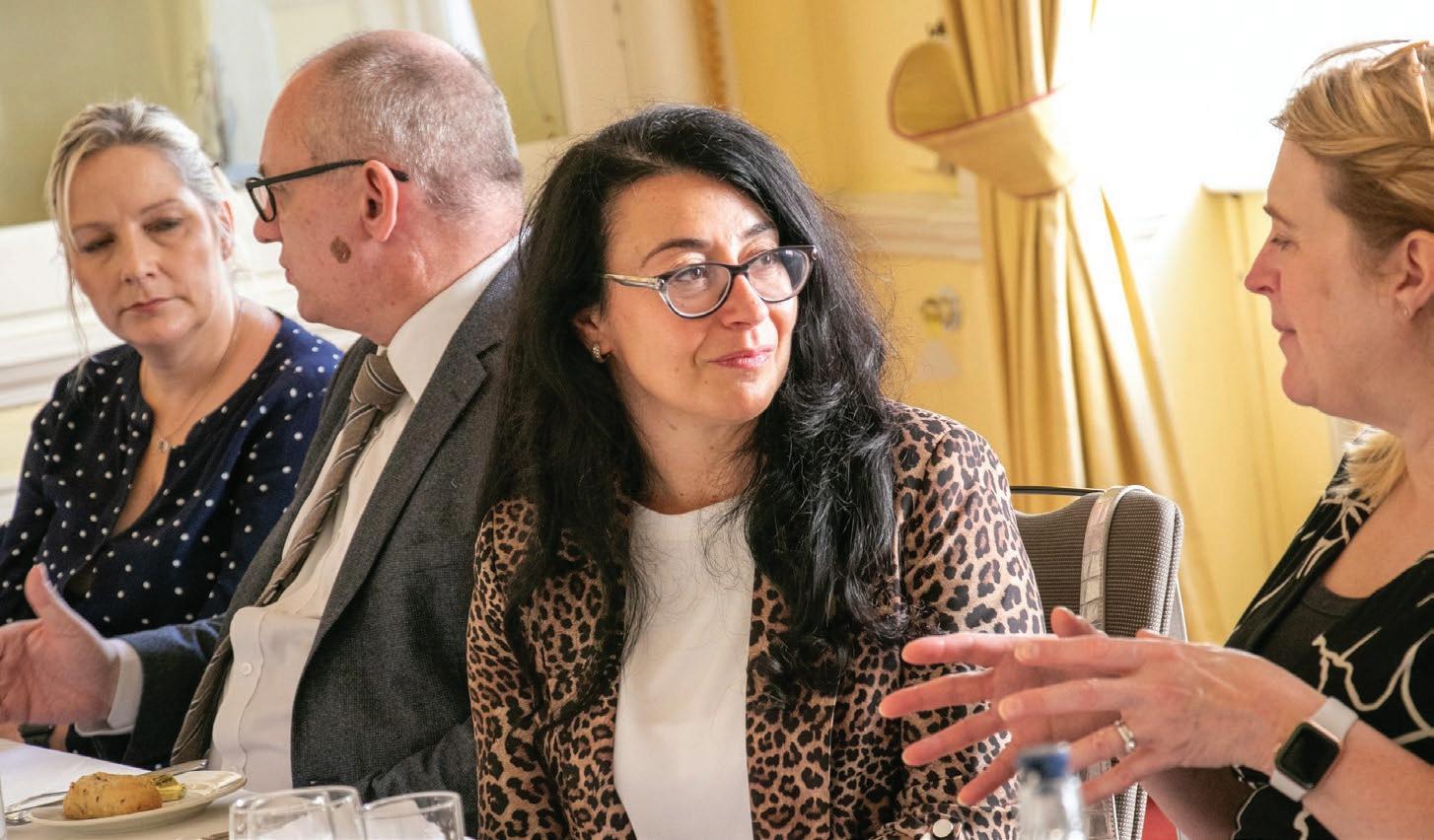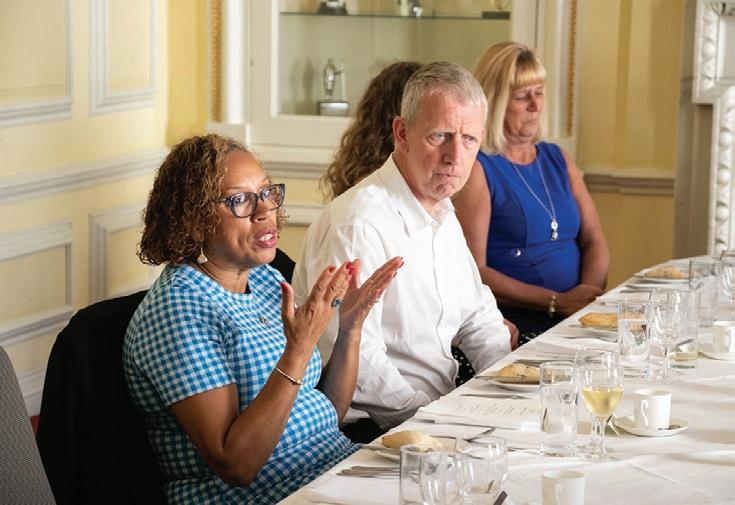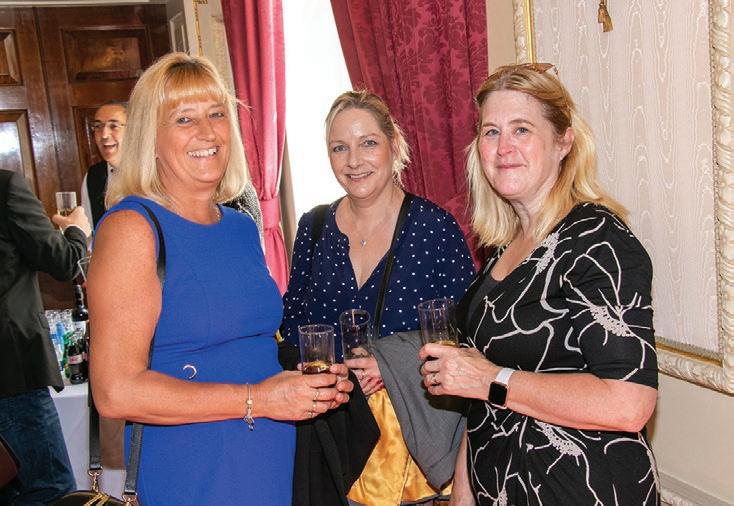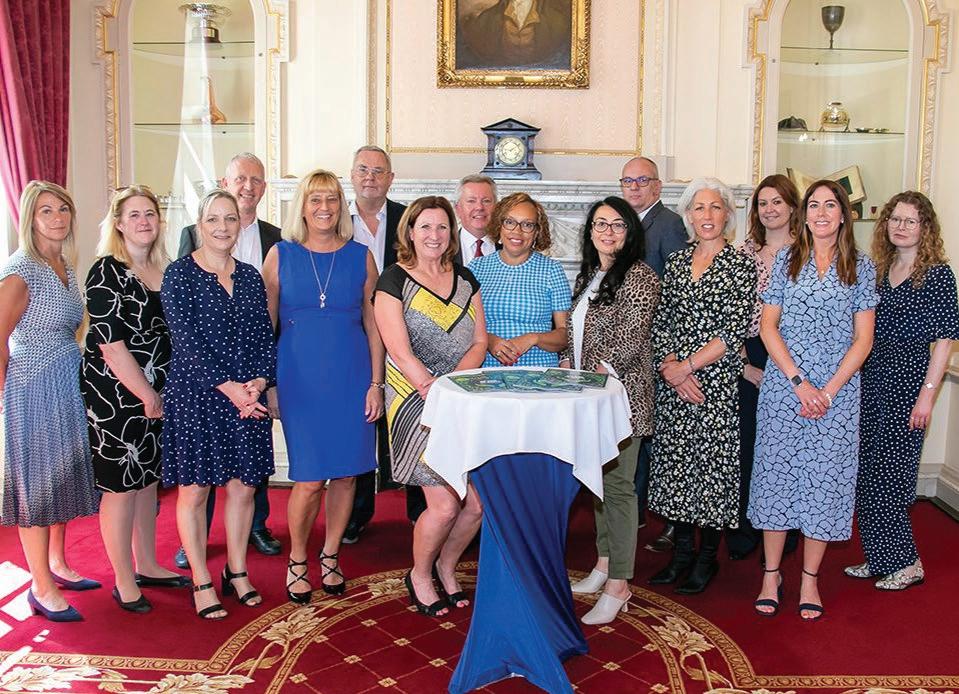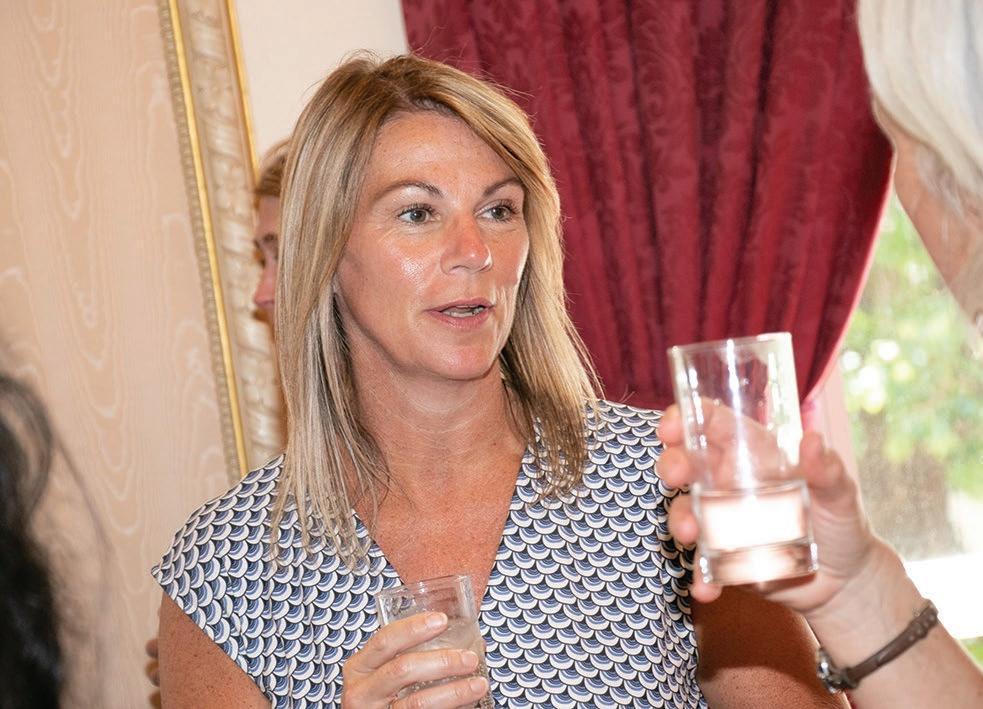
3 minute read
Rail sustainability: Report
RAIL SUSTAINABILITY
TIME TO TAKE STOCK
Rail operators and travel managers put their heads together at the inaugural Business Travel Lunch Forum
Travel managers called for more
data and better communication about the sustainability benefits of travelling by train when they met with rail operators at the inaugural Business
Travel Lunch Forum.
The event, kindly supported by South Western Railway (SWR), took place in May over a three-course lunch in one of the elegant dining rooms at The Caledonian Club in London’s Belgravia.
Buyers engaged in an informal and lively discussion with representatives from SWR, Great Western Railway, Avanti West Coast and the Rail Delivery Group.
They learned how switching to rail from other modes of transport can play a major part in helping their companies meet their sustainability goals.
While rail accounts for 10% of journeys in the UK, it is responsible for just 1% of transport emissions.
Buyers were told that a high-speed train travelling at 250mph emits just one tenth of the CO2 emissions per passenger of the average aircraft, and half the emissions of an electric car.
But in a bid to strengthen its position as the most sustainable transport option, the rail industry is working hard to further decarbonise train travel through electrification and the use of hydrogen, batteries, and the latest green technologies.
It is aiming for 100% of its electricity to be produced from renewable sources by the mid-2030s. Currently, just over 40% of the UK rail network is electrified, although 70% of trains run on electrified tracks.
Buyers said they were keen to support the rail industry and encourage their travellers to switch to trains but said the rail industry must do a better job at spreading its sustainability message.
One buyer cited an example of how the hotel sector is changing guest behaviour with signage in bathrooms encouraging people to reuse their towels and spelling out the positive environmental impact of their actions. He suggested rail operators might share similar messaging on their trains or elsewhere, extolling the sustainability benefits of going by rail.
DID YOU KNOW?

THE SAME AMOUNT OF CARBON USED TO PRODUCE ONE PLASTIC BOTTLE CAN TAKE YOU 2KM BY TRAIN, WHICH MEANS THAT FOR THE NUMBER OF PLASTIC BOTTLES THE UK USES IN A DAY, YOU COULD TRAVEL BY TRAIN AROUND THE WORLD 1,750 TIMES


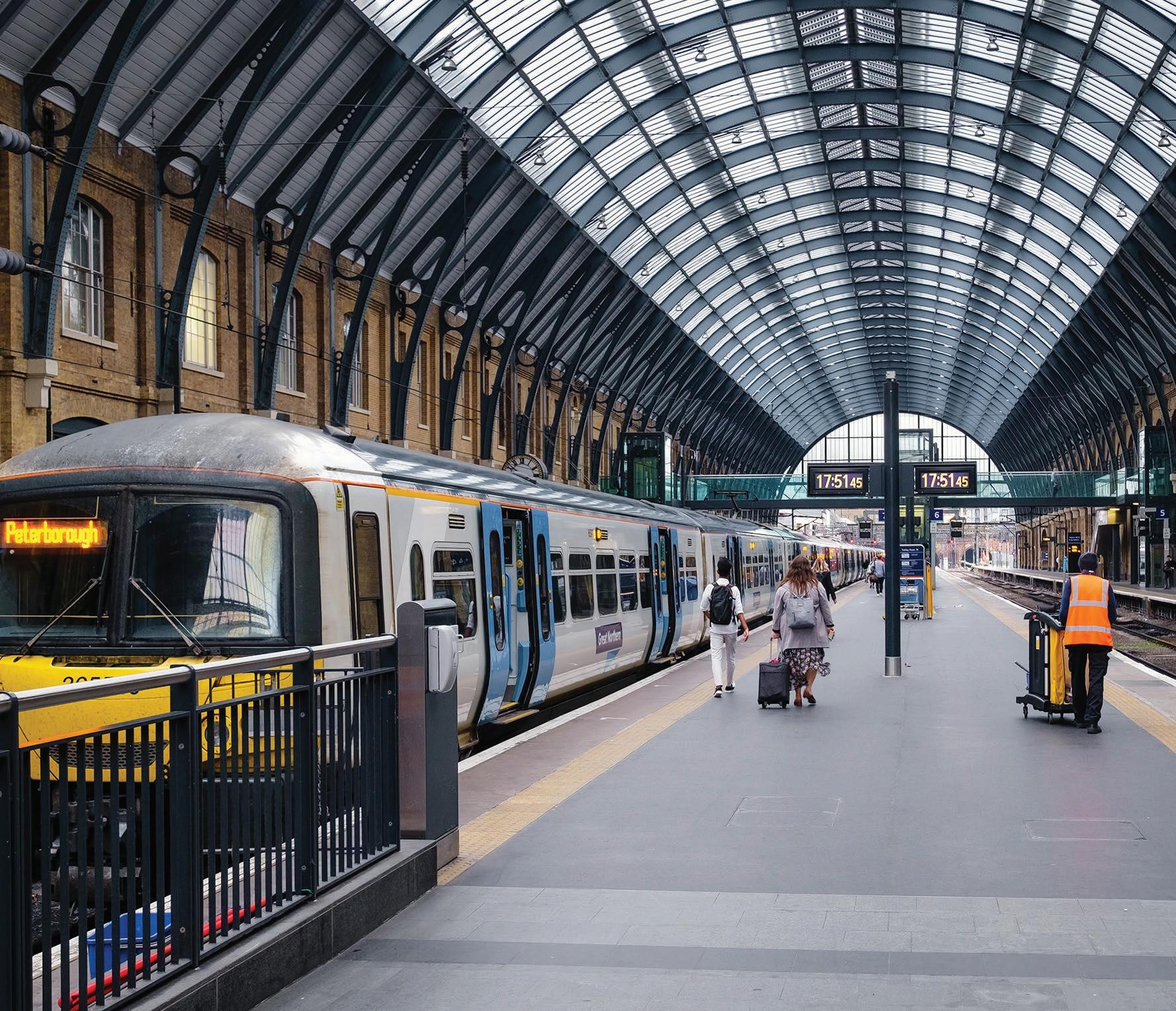
This event was kindly sponsored by South Western Railway


Buyers also called for more data and better reporting to allow them to compare the carbon emissions of travelling by rail with flying or driving. They said without clear visibility for the booker on what is the most sustainable choice, they will not change their habits.
Rail operators said significant investment was being made to make this information more widely available but admitted it was still lagging behind in this respect.
Rail operators argued that alongside their sustainability credentials, trains are ideally suited to new working trends, where people want to be able to work from anywhere.
Looking to the future, they said trains carriages would become offices, with laptop sockets, more space and quiet areas. They predicted flexible train interiors where configurations can be adapted according to the time of day, passenger loads and types.
Buyers said persuading travellers to switch to rail would also be easier if more information was provided on OBTs about the products and services available in the different carriages. “What we effectively want is an NDC for rail,” said one. DID YOU KNOW?


